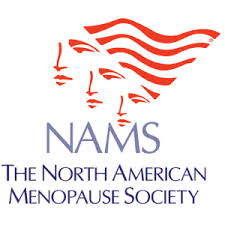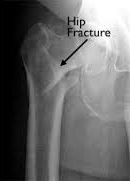Female Hormone Update
according to the 2012 North American Menopause Society position paper.
Which women benefit from estrogen hormone therapies?
 The bottom-line factors which are most important to weigh in the risk / benefit of estrogen therapy are
The bottom-line factors which are most important to weigh in the risk / benefit of estrogen therapy are
- Age: the earlier treated, the more benefit
- Dose: often half recommended dose is effective and safer
- Delivery form: transdermal patches and cream seem to show most benefit to risk
In which women is estrogen contra-indicated?
- Women who have had breast cancer
- Women who are more than 10 years past menopause
- Women with active liver disease
- Estrogen is indicated to be combined with progesterone after hysterectomy with severe endometriosis.
For which conditions is estrogen indicated?
- osteoporosis
- cardio-vascular disease
- Alzheimer’s
- colon cancer
- breast cancer
- macular degeneration
- diabetes
- gallstones
- overall mortality
Who will most benefit from estrogen therapy?
 Women who have premature menopause, defined as menopause before 40 years of age.
Women who have premature menopause, defined as menopause before 40 years of age.- Surgical menopause, no matter what age.
- When estrogen therapy is continued to at least age 50, the risk of all disease and mortality is decreased.
What about enhancing sexual function?
Estrogen has not been shown to have significant effects on libido, arousal, or orgasm. However, estrogen improves lubrication, increases blood flow and increases sensation.
It may come as a surprise that estrogen alone can decrease libido because it increases a binding protein in the blood, which winds up attaching to testosterone. It is testosterone which is more responsible for libido, so if it is not available to cells, the libido goes down.
I had a Well Woman pelvic exam, and have vulvar and vaginal atrophy. Can estrogen help?
Yes, systemic estrogen is effective for restoring vaginal and vulvar tissues, making them plump and lubricated again. However, it may be supplemented with low dose local application of an estrogen cream if that is not enough.
Another alternative is to take botanical (herbal) supplements for promoting the body to make estrogen, supplemented with low dose local estrogen in the vagina.
Intermittent progesterone therapy may be indicated after an evaluation in the case of uterine bleeding and if there is a high risk for endometrial cancer.
I heard the urinary bladder is affected by estrogen. What are the benefits?
Local estrogen therapy my benefit overactive bladder.
In addition, intra-vaginal estrogen can help frequent urinary tract infections and incontinence.
No hormone therapy is approved for general urinary tract health.
What about my bones?
 Estrogen therapy is approved for preventing osteoporosis, however not for treating it.
Estrogen therapy is approved for preventing osteoporosis, however not for treating it.
The benefits of estrogen on bone density is seen only while taking hormone therapy, and the effects dissipate within one to two years.
Since the most rapid bone loss is seen the first years of menopause, the benefit correlates to those years to reduce the risk of fractures.
Prevention of bone loss is especially needed in early menopause, when occurring at ages 40 to 45 and the bone density is already low. If there is no reason that estrogen will cause harm, then it can be used until about age 51, the expected age of menopause.
How is hormone therapy related to heart disease, stroke and blood clots?
Heart disease
There is a discrepancy between observational studies which showed that hormones can decrease the risk versus double blind studies which show risk of heart disease increases with hormone therapy.
Benefits are related in a large part to the age of the woman when hormone therapy started.
- When younger than 55, can be beneficial
- When older than 64, can increase the risk of heart disease
- When more than 10 years past menopause, or more than 10 years since stopped hormone therapies, there is increased risk of heart disease with estrogen therapy.
Stroke
- Hormone therapy increased the risk of ischemic stroke.
- Hormone therapy decreased the risk of hemorrhagic stroke.
Blood clots
Oral hormone therapies are most statistically significant for increased risk for blood clots.
The first one to two years of hormone therapy have the most risk for blood clots, then the risk drops off over time.
Obese people have a higher baseline risk for blood clots, which can be minimized with low dose transdermal hormone therapies.
There is a higher risk in patients with a patent (open) foramen ovale in the heart.
The age of 60 seems to be a breaking point for risk of blood clots: there are less in those less than 60, and more in over 60 year olds.
Risk can be decreased by using transdermal forms of hormone therapy.
What about preventing dementia?
If a woman has a mother, father, sister, or brother with dementia, estrogen given within the first 10 years of menopause can help prevent it for her.
There is an increased risk of dementia in those using hormone therapy who are 65 to 79 years old, according to the studies.
What should I take into account if I am on hormone therapy?
If a woman has been on hormone therapy more than 5 years, she must be evaluated for the risks and benefits for continuation and if there is any other solution for her symptoms.
Data is conflicting, but it looks like there is an increased risk of all cancers in women who use hormone therapy for more than 5 years.
If hormone therapy is discontinued, there is a 50% chance that hot flashes will return.
The data is not compelling that it matters what kind of estrogen gives you benefits – whether it is conjugate equine estrogens, estrogen prescriptions or bio-identical estrogens, they all give these benefits.
On the other hand, it is of utmost importance to choose bio-identical progesterone for its benefits, as other synthetic progestins increase risk for several conditions.
Dr. Tori Hudson, ND does not test hormones for two reasons:
- Hormones fluctuate wildly at perimenopause
- Overall, hormone levels have bottomed out at menopause.
Dr. Hudson switches women from oral hormones to the patch after age 60. She may also use compounded biest cream, but finds that absorption through the skin is highly variable.
The Key is Individualization
All these benefits and risks must be weighed in consideration of your individual health conditions. Dr. Cheryl Kasdorf can help you with this.
Call now 928-649-9234 for more information or to schedule and appointment.
WANT TO USE THIS ARTICLE IN YOUR NEWSLETTER OR WEB SITE?
You can, as long as you include this complete blurb with it: “Naturopathic Physician Dr. Cheryl Kasdorf is a doctor who listens and has answers with a natural approach that works. She is known as the go-to person to get back your get-up-and-go when it is gone, gone, gone. Get your FREE gift “Dr. Kasdorf’s Health Secrets for Feeling & Looking Great” at drcherylkasdorf.com




